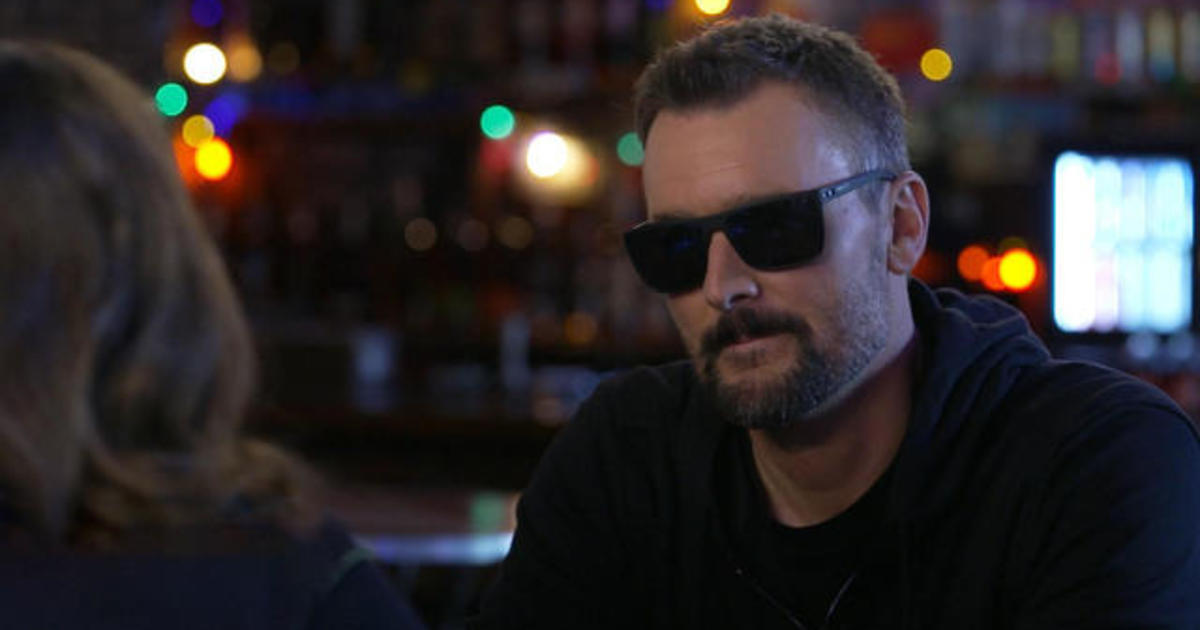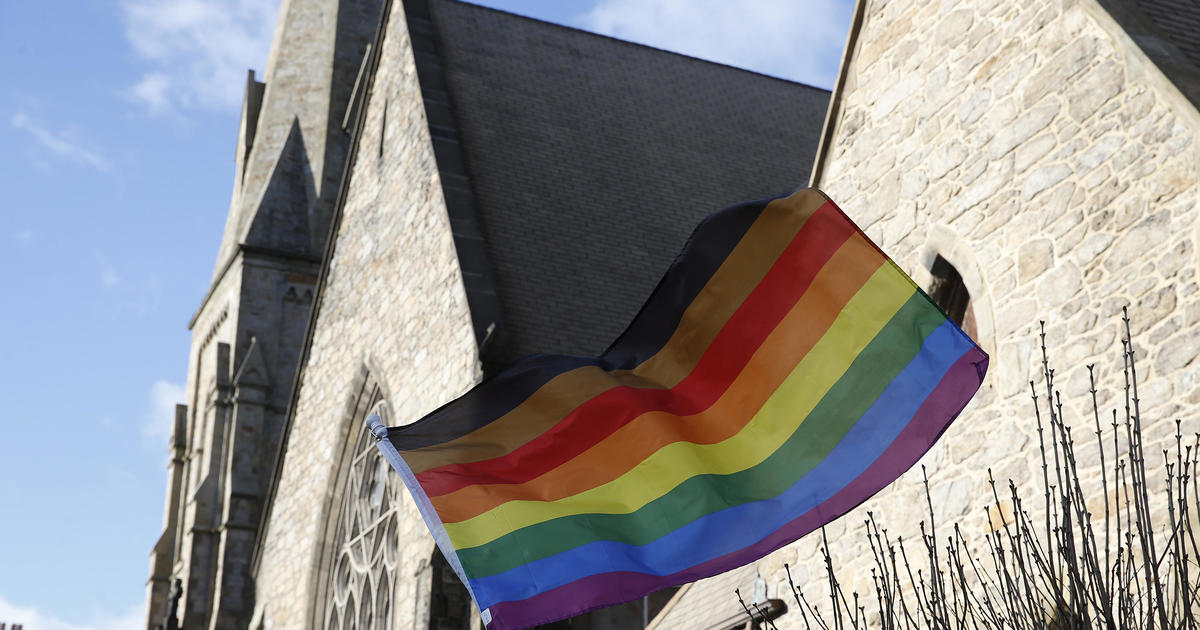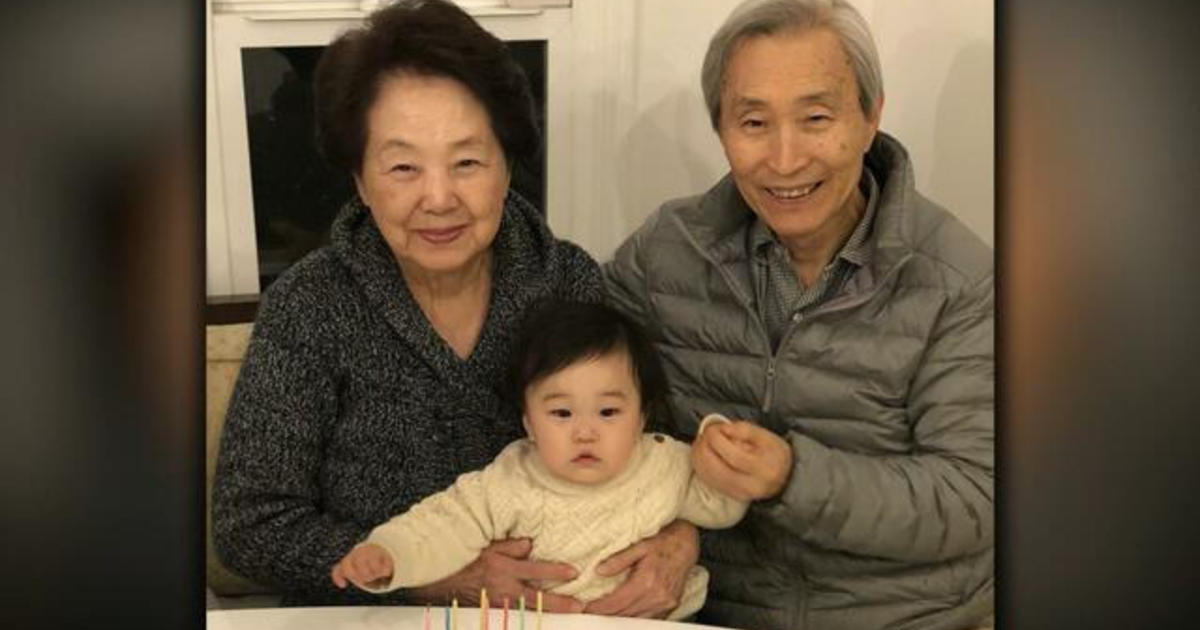Transcript: Mayor Eric Garcetti on "Face the Nation," January 3, 2021
The following is a transcript of an interview with Los Angeles Mayor Eric Garcetti that aired Sunday, January 3, 2021, on "Face the Nation."
MARGARET BRENNAN: We're back now with the mayor of Los Angeles, one of the cities struggling with the pandemic. Eric Garcetti is our guest. Good morning to you.
MAYOR ERIC GARCETTI: Good morning, MARGARET. Good to be with you.
MARGARET BRENNAN: You are at the epicenter of this outbreak right now, and I saw you said a high percentage of deaths are among people with no underlying conditions. Why is the virus so deadly right now?
MAYOR GARCETTI: Well, we're seeing a person every six seconds contract COVID-19 here in Los Angeles County, the nation's largest county, 10 million people. And it's two reasons, one is just simple density. We're the densest metro area in the United States. But we're also seeing the household spread now. One person is coming home, an essential worker, there might be five, seven, 10 people in that household. And this is a worrying trend that the fatalities now are not just people with pre-existing conditions. 92% of previous deaths were people who had an underlying condition. That is rapidly falling. So, my message to everybody is this is not only going to come for somebody that you love. This is going to possibly come for you. And so everything we do is either lifesaving or life-taking at this point.
MARGARET BRENNAN: Is the higher incidence of death due in any way to the fact that you have a shortage of medical personnel?
MAYOR GARCETTI: There's no question that we have a shortage of medical personnel, but that's not yet why we think those deaths are happening. We think it is spreading. It may be mutating as well, but we do believe that this is just how widespread it is and that a lot of people who are younger or don't have pre-existing conditions have become very comfortable. This is a virus that preys off of our weakness, preys off of our exhaustion. 95% of people can be doing the right thing. It's still dangerous. If 80% are doing the right thing, it is disastrous. So, while we have high compliance here, we still have these tough months- and I think the vaccine has made everybody so hopeful that they can relax their behavior. We cannot. We cannot let up. This is the darkest month we will have, the toughest moment when both our country, its government and the nation- our people will be tested.
MARGARET BRENNAN: You have a mask mandate. I mean you're saying that some people are just not complying with some of the restrictions you've put in place. You had that targeted stay at home order in early December. Do you think that you waited too long to institute that?
MAYOR GARCETTI: No. We have great compliance. We look at our data. People are moving less. I was talking to the head of the Red Cross out here who just moved from another state. She was blown away by how many people wear masks compared to where she was coming from. This is something now that really is spreading in the home. And once you get past that tipping point, and it's a message for all of America, we might not all have the same density as Los Angeles. But what's happening in Los Angeles can and will be coming to many communities across America. If you get two households together for Christmas, if you went to a New Year's gathering- even if it was people you know and love so you thought it was OK. That's when this virus exploits that weakness and is going far. L.A. was the first place to close places down that- where people meet, have a mask mandate, offer widespread testing to folks with or without symptoms, surge into our senior and skilled nursing facilities--
MARGARET BRENNAN: Yeah.
MAYOR GARCETTI: --where we arrested most of the deaths there. We've done everything right. But this virus doesn't care what you've done in the past, only what you're doing today.
MARGARET BRENNAN: What about the vaccine that is being distributed now? You've publicly called for the vaccine manufacturers and the federal government to deliver more, but it's your governor who controls the distribution. Is he not giving you what you need?
MAYOR GARCETTI: No, we- we have not been delivered what was promised at the national level. I mean, I know and thank God for the great work that was done nationally. Let me give that praise for developing and helping the private sector get these vaccines. But we are at a pace right now to deliver vaccines in Los Angeles in over five years instead of over half a year at this pace.
MARGARET BRENNAN: Right, but you just heard the head of Operation Warp Speed lay that firmly at the door of the governors in this country.
MAYOR GARCETTI: Well, I respectfully disagree because I said six months ago, calling with Senator Chris Coons and a bipartisan coalition in Washington for a care corps, a care corps that would have trained people for all sorts of things, including vaccine distribution, while Washington dithered, while they went on vacations, while they didn't pass a relief bill for seven or eight months--
MARGARET BRENNAN: Right.
MAYOR GARCETTI: --we could have been training out of work folks and students to be ready. We knew that the surge was coming in the winter. We also knew that the same medical personnel who would need to give the vaccines, if we were lucky to get them by the end of the year and we did, would also be pulled into those hospitals to treat people.
MARGARET BRENNAN: Yeah.
MAYOR GARCETTI: Where was the forward planning?
MARGARET BRENNAN: Well, the federal government keeps saying the forward planning was supposed to be with local government. And the city of Los Angeles, we know, you- you were talking about the uniqueness of your city in terms of density. You also have a high homeless population. You've had a 16% rise in the year past. How are you planning to deal with that problem and getting vaccine into those members of your community? Because that's- that's your problem as mayor?
MAYOR GARCETTI: Absolutely. And we've actually had a lower incidence of COVID-19 among our un-housed population than those of us in housing because of the way we did plan. And we did bring medical personnel to the streets and we have distributed masks. And that is a great platform to help make sure that vaccines are going to go to the most vulnerable. In fact, this week we stood up three and we're about to do four more seven community walk-up vaccine sites for folks that are working right now in some of our community clinics, working on places like Skid Row. But to go to your point earlier, the federal government can't tell the local governments and state governments to do something and not give us aid.
MARGARET BRENNAN: Yeah.
MAYOR GARCETTI: We were cut out of that federal assistance that we could have put into. I said the cares corps would have been--
MARGARET BRENNAN: Yeah.
MAYOR GARCETTI: --not federal people coming in, but local folks hiring locally. And they failed to do--
MARGARET BRENNAN: OK.
MAYOR GARCETTI: --that.
MARGARET BRENNAN: Governor, we wish you well. And I know- I know your daughter was recently ill. I hope she is recovering. Thank you for--
MAYOR GARCETTI: She is.
MARGARET BRENNAN: --your time. We have a lot more FACE THE NATION.
MAYOR GARCETTI: Thank you, MARGARET, strength and love to you.
MARGARET BRENNAN: Stay with us.



